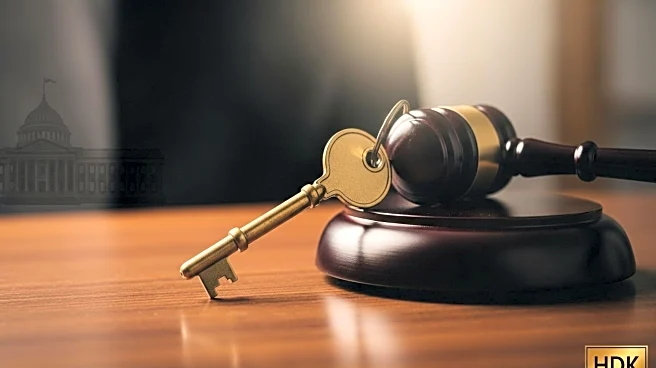What's Happening?
President Trump has decided not to extend his 30-day takeover of Washington, DC's Metropolitan Police Department, as the city has agreed to indefinite collaboration with federal law enforcement. This decision follows an executive order by DC Mayor Muriel Bowser, which aligns with federal goals without requiring congressional approval. Trump had previously considered pushing for continued federalization of the DC police force but has abandoned these plans after Bowser's commitment. The White House has discussed revised plans with House Speaker Mike Johnson, who stated that Congress does not need to act on extending the crime emergency.
Why It's Important?
The lapse of the federal takeover of DC's police force marks a significant shift in the city's law enforcement strategy. It reflects a move towards local autonomy while maintaining federal cooperation, potentially impacting crime management and public safety in the capital. The decision also highlights the complex relationship between federal and local authorities, with implications for governance and law enforcement policies in major U.S. cities.
What's Next?
Questions remain about the continued presence of National Guard troops in DC, as their deployment is not subject to the same time constraints. The collaboration between DC and federal law enforcement may lead to new strategies for addressing crime and public safety. Political leaders and civil society groups may react to these developments, influencing future policies and decisions regarding federal involvement in local law enforcement.
Beyond the Headlines
The situation underscores the ongoing debate over federal versus local control in law enforcement. It raises questions about the balance of power and the role of federal authorities in managing crime in urban areas. The decision may set a precedent for other cities facing similar challenges, prompting discussions on the effectiveness and implications of federal intervention in local policing.











